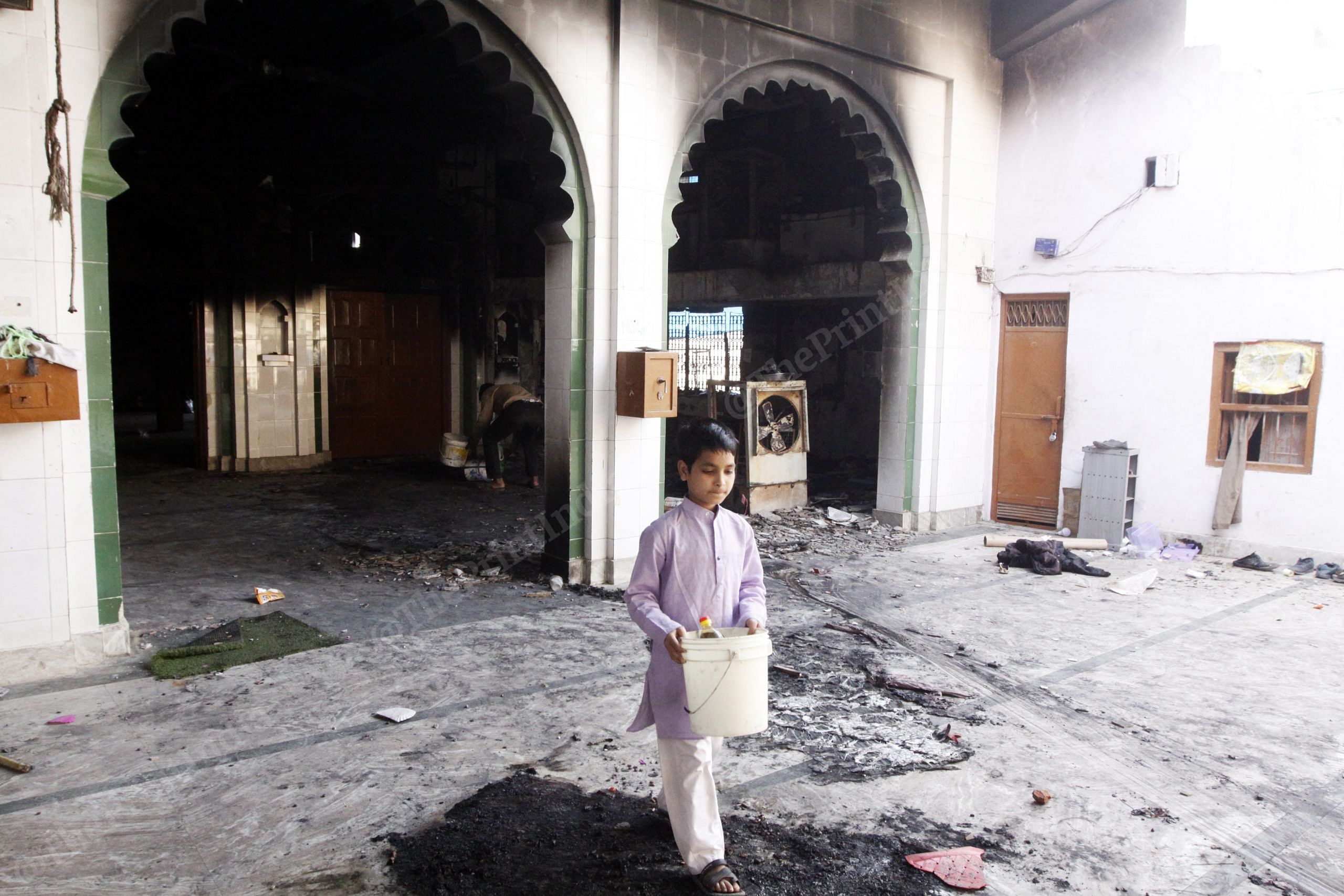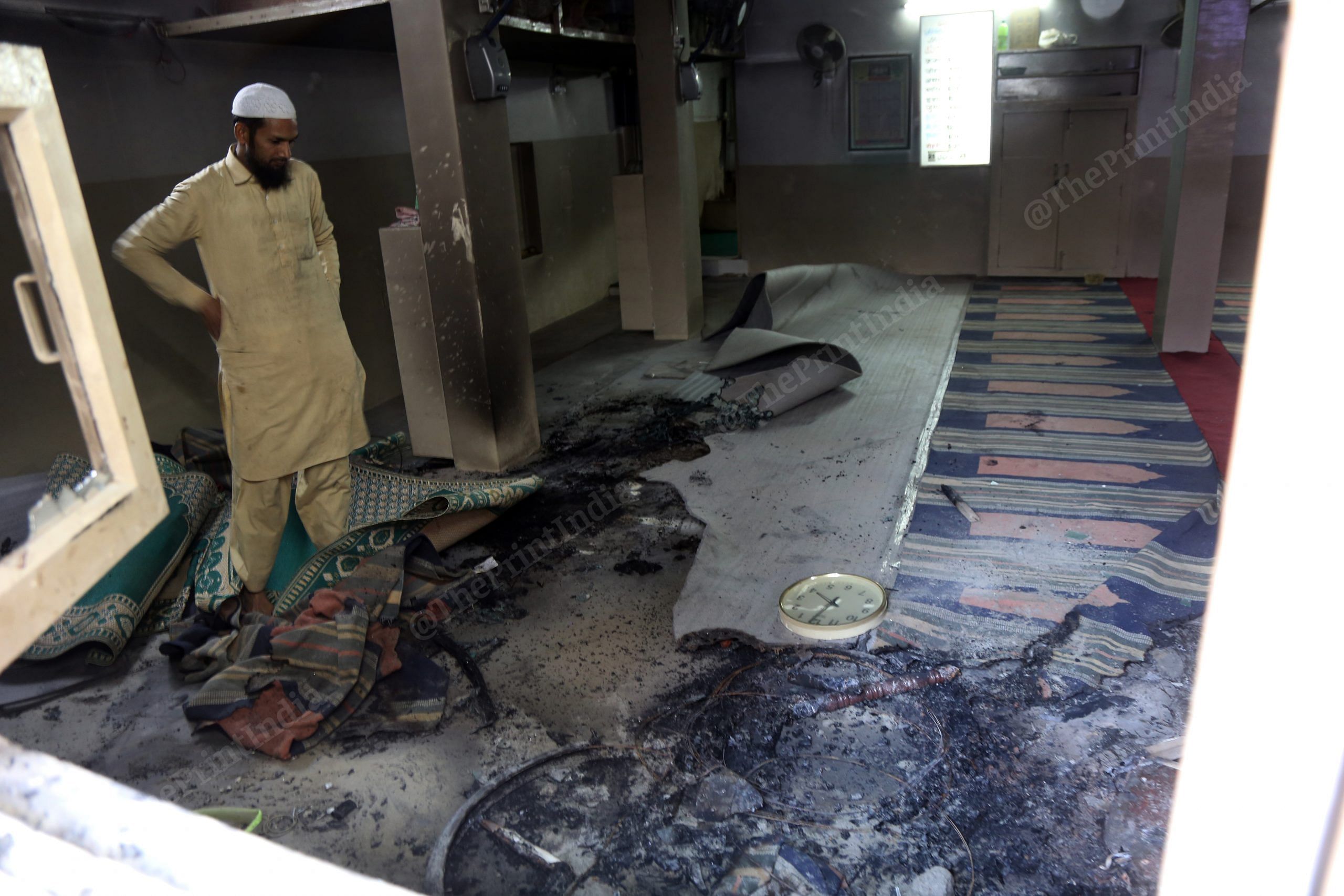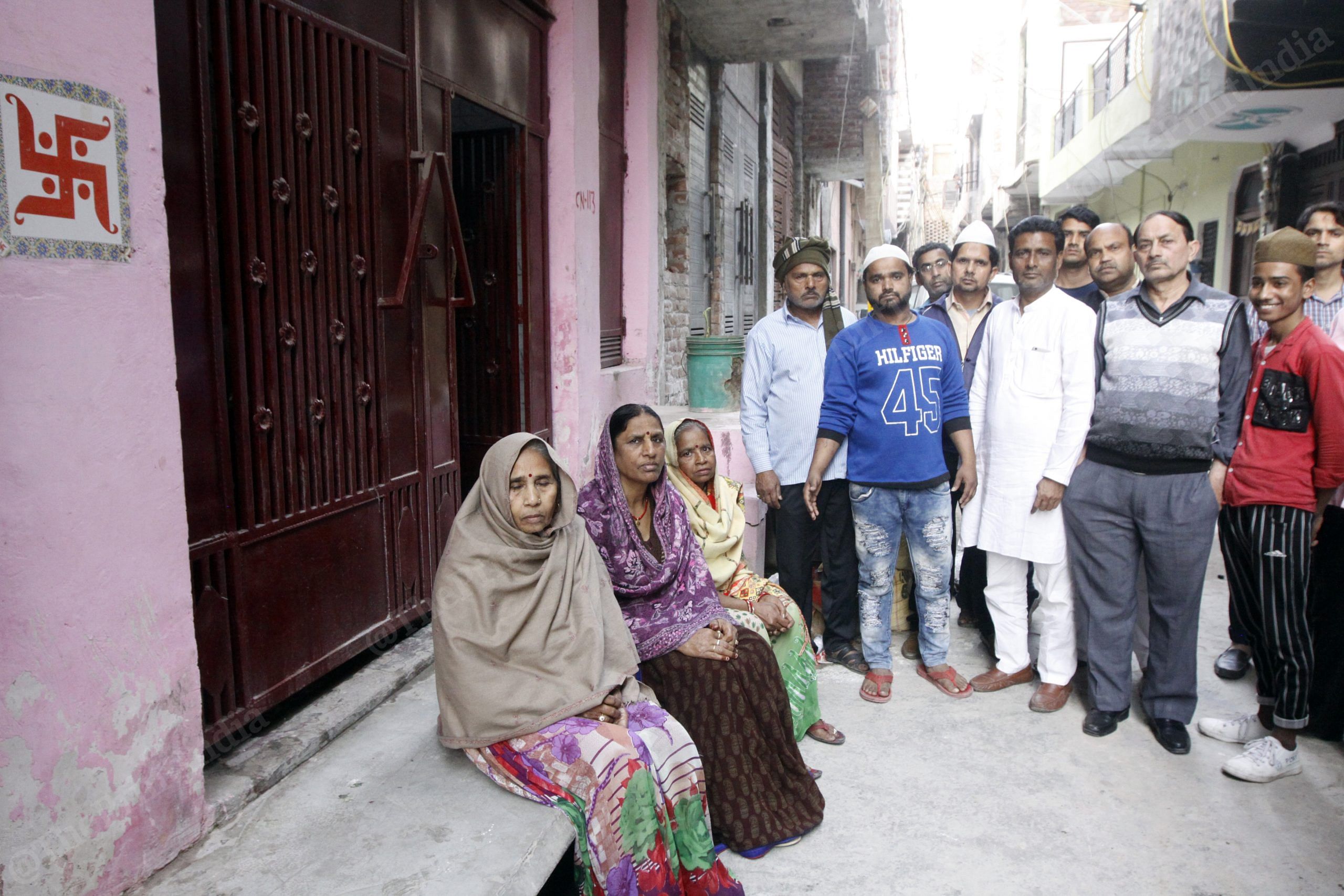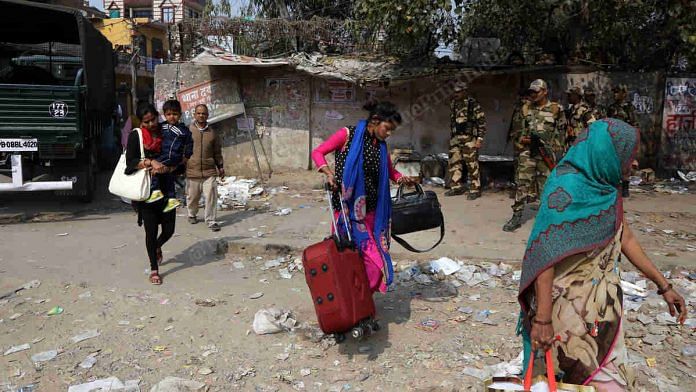New Delhi: Several Hindu and Muslim residents of Northeast Delhi remained in the grips of fear even as the riots subsided Wednesday, with many packing their bags for “safer places”.
However, there were others who cited the local tradition of harmony and refused to believe the violence was the handiwork of their neighbours.
At least 24 people were killed in the three days of rioting that tore through this part of the capital following clashes over the Citizenship Amendment Act (CAA) that erupted Sunday. Over 150 others were injured in the communal frenzy, which saw mobs attack journalists, vandalise religious places and set fire to cars, shops and homes.
In Mustafabad, where at least two mosques, a school and one madrassa were set ablaze by a mob late Tuesday evening, residents described “unprecedented fear”.
“We have two young children. This is a Muslim-dominated area… Since the mosques were burnt, we have been scared something might happen to us in retaliation,” said a Hindu woman fleeing the area with her two children.
Brijpuri resident Jitendra Kumar, 25, who sustained injuries in stone-pelting Tuesday, said he had sent his sister and mother to their uncle’s place in Gonda, Madhya Pradesh. “I can’t leave, but I don’t want my mother and sister to get hurt here.”
Left anxious by the “simmering tensions” between the two communities, some daily-wage labourers and rickshaw-pullers also said they would leave Delhi and go back to their homes in UP and Bihar.
Also Read: Among Delhi riot victims, a 22-year-old auto driver, Bihar labourer, and father of six
‘Denied food and vegetables’
Many of the residents who spoke to ThePrint had a common undertone to their experience — all spoke about years of peaceful coexistence disrupted by the spell of violence unleashed Sunday.
“Both sides were fighting and intimidating each other last evening (Tuesday). But when the mosques and madrassas were set ablaze, it really escalated things,” said Mohammed Raheemuddin, a 45-year-old resident of Mustafabad.

According to eyewitnesses, Mustafabad’s Meena masjid was allegedly torched around 4.30 pm Tuesday, and the Farooqia masjid and its adjacent madrassa two hours later.

In the Noor-e-Ilahi locality, residents said the violence had manifested in other ways too, leaving them struggling for food and basic amenities. “We went to the shops in Vijay Park, but we were denied vegetables and milk because we are Muslims,” said one resident. “We haven’t been able to source milk over the past two, three days.”
A local Hindu, Saurav Srivastava, said “people from the Muslim side threw petrol bombs on us at night”. “Over 60 men of the mohalla stayed up overnight guarding their houses.”
A group of four sexagenarians — Sushila, Bimlesh, Lilavati and Rari — who have lived in Mustafabad for around 35 years said it used to be Hindu-dominated when they moved there.
Bimlesh added that, over the years, local Hindu residents moved to better areas and sold their houses to Muslims. “For all these years, I had never felt unsafe, but after what happened yesterday, I am scared about the possibilities,” she added.

Standing up for each other
Even so, other residents relayed stories of brotherhood that broke through the shroud of violence. A Muslim resident, for example, explained how they had fiercely protected a Hindu-owned shop in a Muslim mohalla. Another blamed the violence on outsiders, saying it couldn’t have been his neighbours.
In Mustafabad, some Hindu residents described how they had been protected by their “Muslim brothers”.
Rajendra Kumar, 27, and his mother Saviriti Devi, 60, said the family had been residents of the area for the last 30 years and never felt unsafe.
Dashrath Singh, a 65-year-old shopkeeper, echoed their claim. “I have been living in this area since 1982 and have never seen communal tension after the 1984 riots.”
“All my friends are Muslims,” added his son Amit, 28. “We grew up together as friends. The lines of communal divide are blurred in this area.”
Suraj Paan Singh, a Sikh resident, said the communal frenzy of the past three days was a first in 25 years. “We live like brothers here,” he added. Asked if he sought his neighbours’ help during the violence, he said, “No… Na Maine kisiko dukh dena, nahi maine kisika dukh lena (neither will I give anyone pain, nor will I share anyone’s pain).”
Also Read: Desecration of mosque damaged harmony Delhi’s Ashok Nagar stood for, says Hindu resident




Amazing to see how unprofessional and blind this team has been in reporting without mentioning Tahir Husain , their prior preparation with petrol bombs etc. What were you doing on the ground. Just doing a formality. Where are local voices. Shame on you for contributing to false international propaganda against Indian masses.
Shekhar ji’s recount of riots history is factually wrong too. There were several communal riots in old Delhi in early 1970s also. For example, refer kishanganj riot in 1971